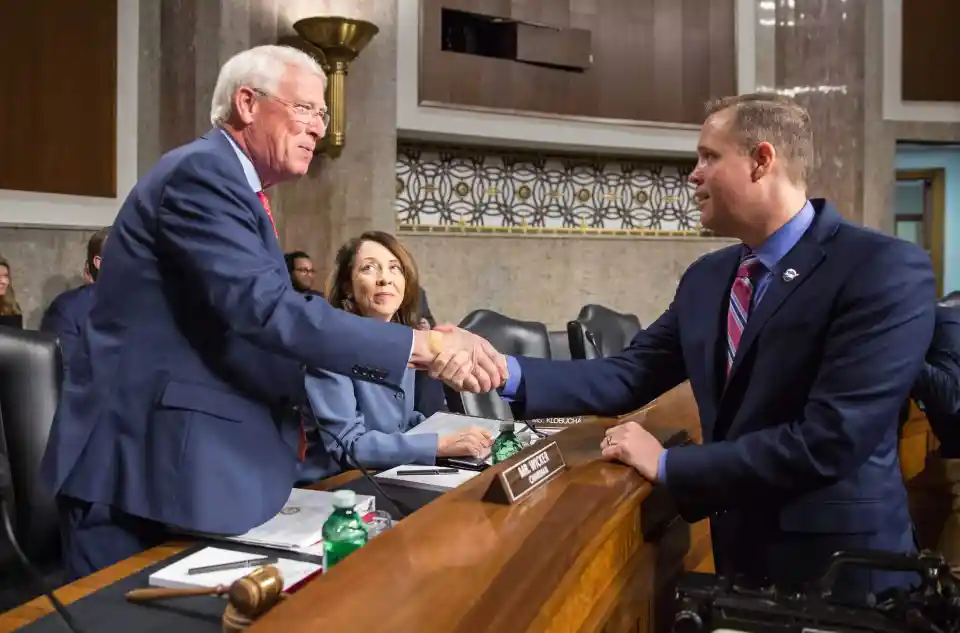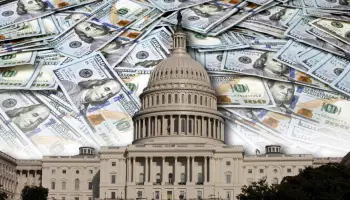Does Political Secrecy in Congress Help or Hurt Governance and Accountability?
A discussion debate featuring James D’Angelo and Peter Loge in three parts below.
Publius and The “Evil” Geniuses of Darkness
By James D’Angelo – Founder of the Congressional Research Institute
June 12, 2022
In a pool of blood and lost lives, the American Revolution galvanized the 13 states by a trial of fire into a hopeful nation. After an initial rush of prosperity, the aftermath quickly turned ugly and partisan. There was a surge in debt and broken contracts. Uprisings, like Shays’ Rebellion, saw hundreds of disgruntled veterans raid jails, shut down courthouses, and empty armories—terrorizing the defenseless states.
George Washington, James Madison, and Alexander Hamilton feared the fragile, suddenly antagonistic union would dissolve. Thomas Jefferson’s soaring Declaration of Independence had energized the revolution, but, as John Adams argued, it did nothing to build a government. In this anarchic vacuum, France and England appeared ready to gobble up the bankrupt states one by one.
Secrecy Inspired by Journalistic Endeavors
Long buoyed by the revolutionary antipathy for the British, journalists struggled for revenue in the post-war era. As a result, many pivoted, turning invective-laden quills inward toward the fledgling democracy. They picked sides, inking populist, anger-laden tirades about those in power.
This maelstrom created a precarious balance for the would-be Framers of the Constitution. If broadcast, the Framers’ desires to raise taxes and fortify the federal government would run afoul with the angry mobs, scandal-driven press, and the populist state governors.
While writing the Declaration, the Framers feared beheading by King George. However, when crafting the Constitution, it stoked fears of political and literary assassination. Given Washington’s wartime daring and Hamilton’s propensity to duel over issues of pride, it wasn’t clear which outcome these leaders feared more. Therefore, to buy time and goodwill, they used their go-to tactic: stealth.
Washington and Hamilton were massive proponents of secrecy. Seasoned by wars, spies, and intrigue, they had long appreciated the benefits of subterfuge. To avoid leaked plans or enemy detection, they spread lies even among their staff. Despite hagiographies by the likes of Parson Breem, the first president knew how to tell a lie.
However, no one outshone Madison when it came to secrecy. Camouflaged in the bustle of Philadelphia streets, Madison took furious notes on covert statecraft: “Secrecy is not so rare among persons used to great affairs as is believed.” To the Framers, creating policy wasn’t akin to warfare—it was warfare. In drafting the Constitution, their foes were as ruthless as enemies in war.
So, as they descended on Philadelphia with 55 fiery delegates to craft the Constitution, the Framers cloistered themselves behind sealed windows, locked doors, and thick curtains—opting instead for the same cooling secrecy they used when writing the Declaration.
The Results Were Evident
By shutting out the partisan, scandal-seeking press, the Framers allowed rancorous ideas to cool into tactful discussions. By preventing wealthy factions and populist firebrands a view of their battle plans, they created space to weave the various provisions in peace.
Noting how partisanship feeds on transparency, Hamilton claimed that “had the deliberations been open while going on, the clamors of faction would have prevented any satisfactory result, [and]… propositions…would have been the handles for a profusion of ill-natured accusation.” Even the tight-lipped Madison concurred, opining that “by secret discussion no man felt himself obliged to retain his opinions any longer than he was satisfied of their propriety and truth.”
And when the two men spilled ink in defense of the Constitution—writing the lion’s share of the Federalist Papers—they once again relied on stealth, publishing their greatest work behind the shelter of a single shared pseudonym, Publius. These layers of subterfuge confounded their enemies. Stripped of their ability to launch ad hominem attacks, the flame-tongued demagogues and vituperative press appeared to be boxing with ghosts. So, they attacked the secrecy itself. One claimed the Constitution was birthed “from the womb of suspicious secrecy.” Another decried the Framers as “evil geniuses of darkness.” But, these impersonal jibes failed to resonate.
Success Behind Closed Doors
Once ratified, the Framers’ secret approach to lawmaking held sway. From 1789 to 1971, all important congressional committees—from those attended by James Madison to Senator John F. Kennedy—were secret, closed-door affairs.
Looking at this era, political scientists have not only commented on the lack of partisanship, but they have also measured it. On the day when President Nixon signed the Legislative Reorganization Act of 1970—a law that pushed Congress’ “dark conclaves” into the glare of sunshine—congressional partisanship was not only at an all-time low, it had been falling for decades. Filibusters, omnibus bills, and weaponized amendments were also at all-time lows. This was the same for the debt, inequality, and rates of incarceration.
In the waning years of these closed committees, a virtually all-white, all-male, southern-controlled Congress passed Medicare, environmental regulations, and the most important pieces of civil rights legislation in US history. But in 1971, lobbyists and the press pushed their way inside. Empowered by Nixon’s “ghost bill,” the new-found demagogues and belligerent journalists once again found fodder to terrorize members. Long hidden by the cooling shade of secrecy, moderates were excoriated by both sides. Partisanship rocketed upwards with the speed of the Apollo spacecraft.
Scholars are just now realizing the mistake. In 2017, Sarah Binder claimed that “negotiating win-win deals requires secrecy.” In 2020, Senator Ben Sasse pined for more secret sessions precisely as an antidote to partisanship: “Without posturing for cameras, Republicans and Democrats cooperate on some of America’s most complicated and urgent problems.”
Returning to Secrecy
Given that secrecy is the only proven antidote to chaos and partisanship, how can this tide be reversed? How can the cooling secrecy be restored?
Fortunately, there is a peculiar passage in Article I, Section 5 of the Constitution. Overlooked by journalists and undiscussed by the Framers, the document’s only use of the word “secrecy” provides a right for Congress—and Congress only—to work in secret.
Therefore, returning to a secret Congress would not be unusual by any means. Instead, it would be a return to a historical precedent. As Congress fumes and boils in a partisan fury today, this secret clause sits unused. Yet, unlike other proposed congressional reforms, its cooling salve is endorsed by the Framers and already codified in the Constitution.
Who put it there? What were their intentions? No one knows. But one thing is sure, Publius wanted it that way.
We Need More Trust, Not More Secrecy
By Peter Loge – Associate Professor, School of Media and Public Affairs, George Washington University
June 18, 2022
James D’Angelo makes a compelling argument and he is not alone in supporting political secrecy. As political scientist John Sides writes, some voters support “a system of ‘stealth democracy’ where decision-making is carried out largely outside of the public’s view and by people that the public did not elect.”
But democracy done in secret is not a great democracy. It is a system in which the public does not trust those they elect and a system in which those who are elected do not trust the judgment of their voters. A better solution is building public trust and fostering “political friendship.” I will start with Mr. D’Angelo’s argument and then suggest an alternative.
Who Benefits from Secrecy?
Mr. D’Angelo grounds his essay in secret deals cut by the Framers of the Constitution. Secrecy might have been a good idea in 1776, but that does not mean it is a good idea in 2022. The obvious point to note is that those cutting the deals in 1776 looked a lot different from those cutting the deals today. The roughly 2.5 million people living in the 13 colonies is only slightly more than the current population of Houston, Texas. They were all white, male, and Christian. There is also the critical question of who is allowed to be in “the room where it happens”? Whose interests get negotiated away behind closed doors? The obvious example is the Three-Fifths Compromise, in which secret negotiations denied the full humanity of one in five people living in the colonies.
It is of course true that, as Mr. D’Angelo notes, in the 1960s a largely white, male Congress passed landmark civil rights, environmental, and social safety net legislation. But they didn’t do so simply because the doors were closed. If that were the case, what took them so long? Legislators were responding to the courts, to social and political pressure, and to the arc of history. Better angels were part of the reason – and so was political reality.
The demise of the moderate dealmaker, which Mr. D’Angelo says secrecy can help restore, has been lamented at length. Gerrymandering, partisan media, absurd amounts of money in the system, social media, social sorting, and more have been listed as contributing factors to our state of political awfulness. Secret deals do not change the fact that cooperation is often punished in the press and at the polls. Our political incentives reward invective, not compromise.
Reducing Visibility Reduces Trust
A problem with secret deals is that people don’t trust them – a lack of trust which forced people behind closed doors to begin with. Secret deals get attacked for being secret rather than on the merits of the deal, which can tank even the best ideas. Recall the Republican effort to repeal and replace the Affordable Care Act. The secret nature of the effort was, according to George Washington University political scientist Sarah Binder, “highly unusual” and “far out of the norm.” The bill was criticized by both Democrats and Republicans in part because it was negotiated behind closed doors. Secrecy did not work. The bill failed. On the other hand, the Affordable Care Act, which the bill sought to replace, was the subject of hundreds of hours of committee hearings and had no shortage of public input. And, of course, the Affordable Care Act became law.
People negotiate in private because they do not trust those on whose behalf they are negotiating will support the process or results. You talk in private because you are afraid of what people will think if you talk in public. This privacy can result in things like the Three-Fifths Compromise, a health care bill that would break more than it would fix, and other terrible ideas. Which of course leads to less public trust in those doing the negotiating. Which drives people behind doors, and so on.
Rather than finding new (or re-finding old) ways to make democracy less democratic, we should work to increase political friendship and strengthen democracy. As political philosopher (and former candidate for governor of Massachusetts) Danielle Allen writes, “political friendship begins from this recognition about what we share with the people who live around us and in the same polity. It moves from this recognition of a shared horizon of experience not to a blind trust in one’s fellow citizens but rather to a second recognition that a core citizenly responsibility is to prove oneself trustworthy to fellow citizens.“ We need to continue to work together to find ways to build public trust in our institutions and each other.
Political Friendship in Action
That means more listening and less ranting, fewer fights on TV, and more problem-solving. Taking time to talk to voters and explain positions rather than simply standing next to the loudest people with the biggest signs. Posture less and praise others’ good ideas more.
Republican Senator Ben Sasse of Nebraska, whom Mr. D’Angelo quotes as saying we need less posturing, could call out his colleagues’ showboating for its own sake and applaud the careful and public deliberation of those with whom he disagrees. The press could ignore food fights and Twitter feuds and focus on serious debate. As long as partisans who release crates of squirrels in the halls and then yell “squirrel!” get rewarded, they will continue to infest the buildings with rodents and distractions.
We would all be better served by keeping the squirrels and the attention they attract in the parks and instead reward honest political debate that happens in Congress. To return to professor Allen, we need to “conjoin virtue and technique” to meet the challenge of renovating our democracy. And we need to do so with the windows and doors wide open.
A Rebuttal: A Rhetoric of Trust
By James D’Angelo – Founder of the Congressional Research Institute
June 27, 2022
Pro-transparency scholars are hard to come by. Those that exist are in a tight spot, as they have little choice but to eschew data. Mr. Loge, who has no public history of studying government transparency, does the same here. So, he crafts a rhetorical response that doesn’t just sidestep the data presented (scorching rises in campaign finance, lobbying, and partisanship), but bends the argument toward a more familiar topic—trust.
But the data proves equally vexing, as trust in government plummeted precisely as the US government became more transparent. It’s not clear how rhetoric might overcome this seeming contradiction, but Loge gives it a shot.
Loge’s handpicked examples don’t help. First, scholars aren’t in the habit of building conclusions on single pieces of evidence. So just as we wouldn’t condone jumping off the Golden Gate bridge because Kevin Hines survived the fall 22 years ago, we don’t reject the benefits of congressional secrecy just because a single closed-door caucus in 2019 fails to produce Loge’s desired result (one most Americans were pleased with).
Instead, we look at data—reams of it. And the data is loud. Throughout history, closed-door sessions have produced strong legislation on climate, race, fairer tax, etc.
What has transparency done? That isn’t so clear. But Loge attempts to find a supporting example. Having participated in the drafting and passage of the Affordable Care Act in 2010, Loge claims that this broadly popular legislation was the result of nothing but sunshine.
The trouble is many of the legislation’s most important compromises were conducted in weeks of secret sessions. And it strikes this author that many of the difficulties of Obamacare could have benefited from even more secrecy.
Loge doesn’t stop there. He critiques the Constitution in much the same fashion, highlighting the tragic Three-Fifths Compromise to suggest that the Framers (both their secrecy and the era they lived in) have little of value for us today. This disdain for the past is perhaps why Loge makes another important error. He writes “people negotiate in private because they do not trust those on whose behalf they are negotiating will support the process or results.”
Bipartisanship Through Secrecy
Instead, the Framers spoke clearly on this issue. And what they said contradicts Loge’s claim. The Framers negotiated in private not because they didn’t trust the people, but because they didn’t trust themselves. Madison claimed open sessions led to hard-lining and partisanship, while Hamilton was convinced that sunshine would subject members to the destructive chaos of special interests.
Today, the Framers’ claims appear Nostradamic as they align with the data precisely. The greater the sunshine, the greater the partisanship and special interest capture. So perhaps the Framers’ era wasn’t as different from ours as Loge believes.
So sure, trust is a good thing. Who wouldn’t want a world where glorious policy was determined in open sessions by thoughtful legislators elected by reasonable people and lobbied by benevolent corporations? The trouble is the data confounds our Pollyanna view of the world. Citizens don’t follow legislation, lobbyists do. The public gets fired up over hot-button issues and falls asleep when forced to consider intricate tax policy. Corporations are greedy, rapacious, and vindictive.
So just as secret ballots protect the electorate from the intimidation and bribery of powerful groups at the polls, secrecy in Congress provides the same protective shield. Closed door sessions thwart attack ads, partisan fury, weaponized amendments, and campaign finance.
Left to vote their conscience in secret committees, legislators produce better legislation–not every time–but far more than in open committees. Oddly, via this secrecy, trust in government increases. Loge wants trust and transparency. But if he is willing to embrace the data and the known foibles of humanity, he might find himself forced to choose between one or the other.
Trust isn’t the goal of government. But it is the outcome of good legislation, which historically relies on secrecy.
If you liked this post, you can read more of our Encouraging Bipartisanship series here.







